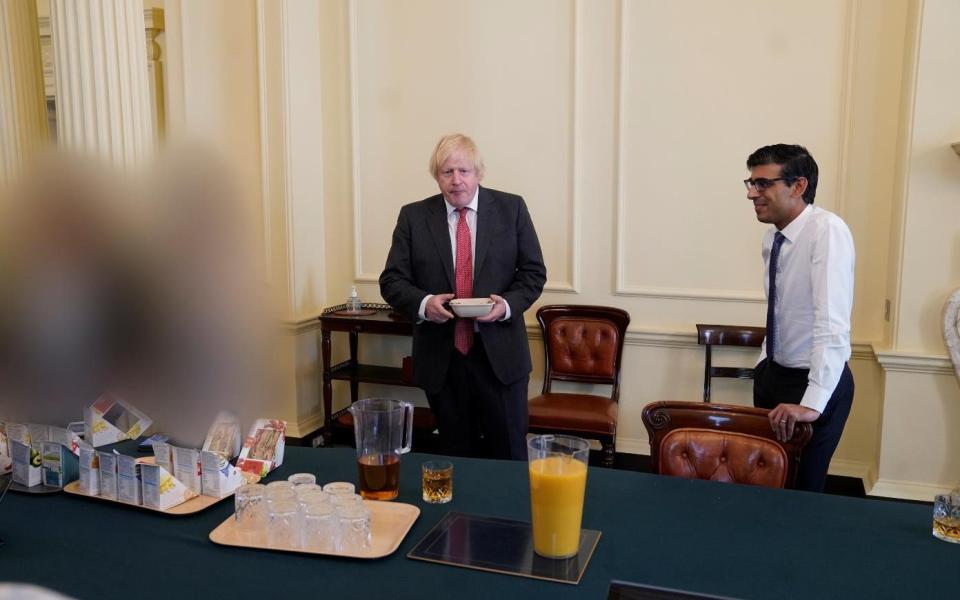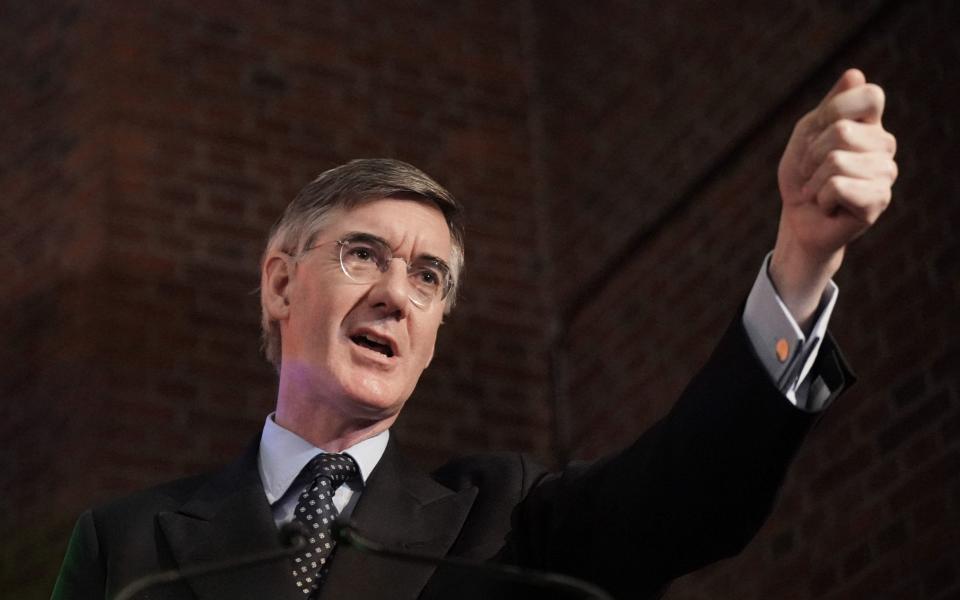Covid fines amnesty backed by Lord Blunkett after politicians escaped convictions but public did not

- Oops!Something went wrong.Please try again later.
- Oops!Something went wrong.Please try again later.
- Oops!Something went wrong.Please try again later.
A Covid fines “amnesty” has been backed by Lord Blunkett on the grounds of “equity” after politicians escaped criminal convictions for breaking pandemic rules but members of the public did not.
The former home secretary is the first Labour politician to back calls to wipe the slate clean for up to 29,000 people who were given criminal convictions for breaching Covid rules.
Unlike politicians such as Boris Johnson and Rishi Sunak who simply paid their fixed penalties, they were prosecuted in the courts as criminals because they either contested the fine or failed to pay it.

“We should align what happened with the penalty notices with those going through the magistrates’ court,” said Lord Blunkett, who served as home secretary under Sir Tony Blair from 2001 to 2004. “They should be treated the same.
“I cannot see any justification for people who were clearly nailed for breaching the rules in the highest levels of government not getting a criminal conviction but people who were foolish and within their own communities being penalised more.
“I would support the wiping of the slate clean purely on equity grounds because there was huge confusion throughout the pandemic about what was or was not a criminal or civil offence and whether it was criminal.”
Fixed penalty
In June 2020, Mr Sunak and Mr Johnson each received a fixed penalty notice for attending a “birthday party” for the then prime minister in the Cabinet room. Both paid their fines and as a result did not receive criminal convictions.
Covid criminal convictions could hamper people’s job prospects as police can pass on the details to potential employers if they are deemed “relevant” for criminal background checks for sensitive jobs such as teaching, social work and policing where applicants deal with vulnerable people or children.
They are also required to declare Covid convictions when applying for visas to visit countries such as the United States and Canada, both of which reserve the right to permanently ban anyone who fails to reveal a conviction.
Lord Blunkett’s calls for an amnesty come after interventions from three former Cabinet ministers – Sir Robert Buckland, Sir David Davis and Sir Jacob Rees-Mogg – as well as former supreme court judge Lord Sumption and the Government’s former Covid testing tsar Sir John Bell.

Charities have also called for an amnesty.
Lord Blunkett said that there did need to be a distinction between someone who had “gone out of their way to infect others” or “had a clear intent to harm others” against those who acted in a “foolish way or failed to completely understand the rules”.
For those in the latter category, he said that there was a further injustice in that there was a geographical lottery about the way penalties were handed.
He noted wide variations in the approaches between forces in different parts of the country with some taking “a more pragmatic approach where they focused on people who had caused serious damage”.
Court-issued sanctions
Ministry of Justice data analysed by The Telegraph showed that the 29,000 fines of up to £10,000 issued by magistrates totalled £26 million, which was higher than for any other type of crime since the start of the pandemic other than motoring offences and TV licence evasion.
Of these, almost half of the fines (£12.4 million) were raised in just five forces: the Metropolitan Police, Greater Manchester, Merseyside, Lancashire and South Wales.
People in their 30s accounted for the largest amount of fines at £6.9 million, although young adults aged 20 or below paid out £3.3 million.
The court-issued sanctions come on top of at least £8.2 million that people paid after being handed fixed penalty notices by police, an alternative to prosecution.
Among those landed with convictions was an 18-year-old student who attended a party during a lockdown, a 35-year-old man who hosted family members on New Year’s Eve and a 72-year-old woman who travelled back from Kenya without evidence of a negative Covid test.

